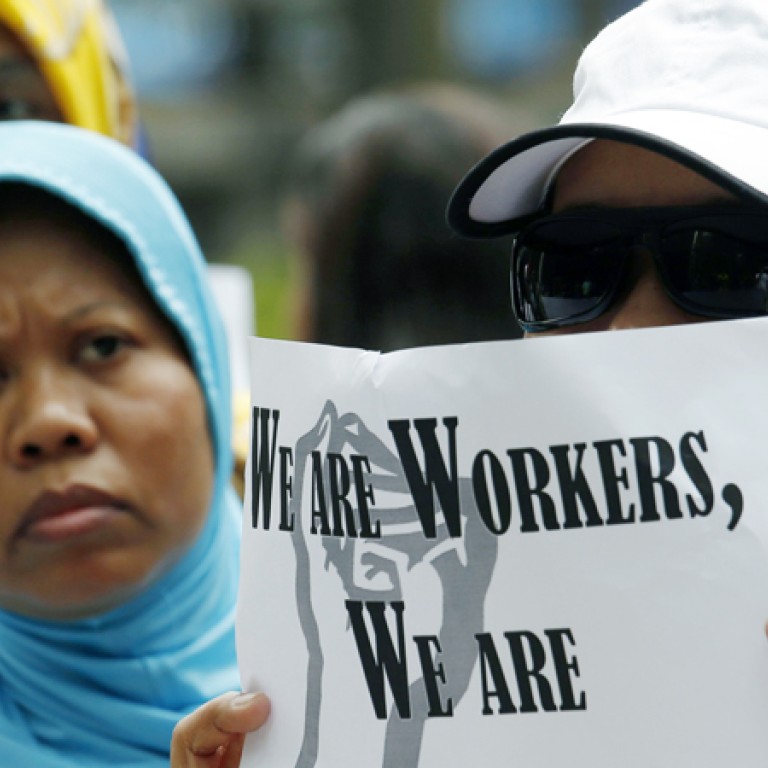
Maid assault case shows Hong Kong helpers need protection
According to the law, employers of domestic helpers cannot live without them - that is, domestic helpers must live with their employers. But some employers cannot live in harmony with their helpers. Sadly, when these master-servant relationships between people of different cultures go awry, they can lead to allegations and counter allegations of abuse of power and trust.
According to the law, employers of domestic helpers cannot live without them - that is, domestic helpers must live with their employers. But some employers cannot live in harmony with their helpers. Sadly, when these master-servant relationships between people of different cultures go awry, they can lead to allegations and counter allegations of abuse of power and trust.
The latest example warrants community reflection on the way Hong Kong handles relations with its ever-increasing domestic helper population of more than 300,000. In a case involving a local couple and their Indonesian helper, a District Court judge found a husband and wife guilty of eight charges including wounding and assault causing actual bodily harm.
Hefty jail sentences for the husband and wife send a clear message that Hong Kong treats such offences as serious crimes. This is to be welcomed. But the discussion should not end there. The authorities should consider a plea from maid support groups to scrap policies they say contribute to abuse of helpers, such as the rule that they live with their employers.
Negative and positive comparison of conditions for maids in Hong Kong can be drawn with other places - mostly positive. Nonetheless, helper support groups say they are not treated fairly under immigration and labour laws, while the domestic helpers employers' association says the helpers are often better protected by law than their bosses. It is in the city's interests to address this gap in perception and expectations. Bad employers may be a minority. But the reality is that maids still have to live in cramped, often illegal quarters in their employers' homes that afford little privacy, and work long hours, often for less than half of what they would earn under the minimum wage.
There is no question they continue to play an unsung role in the city's economy by enabling both parents to work and buy a flat while they take care of children and the elderly as well as housekeeping, cooking and shopping. After remitting earnings to impoverished families, they are left with little disposable income. As a result, they tend to congregate to socialise. But even then they are begrudged the freedom of places that Hong Kong people also like to go to on Sundays.
If a society is judged by how it treats the young and elderly, it has to expect to be judged on how it treats vulnerable servants to whom it entrusts these responsibilities, not to mention the example that sets for our future citizens.

